'Research and more research': How do you choose the right part of Italy to move to?
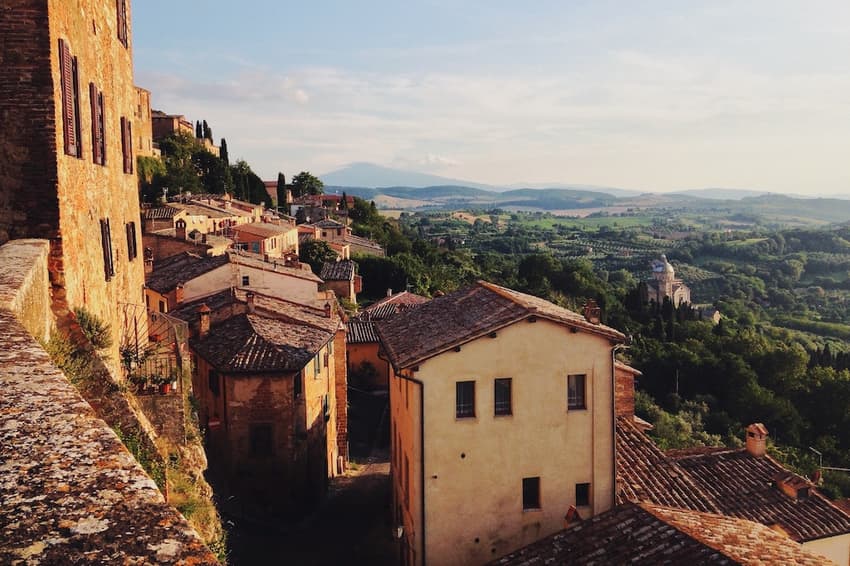
City versus countryside, north versus south, coastal versus inland - in a country as diverse as Italy, how do you choose the right area for you? The Local's readers share their advice.
Many people who dream of moving to Italy have one question for those already living there: where should I go?
The answer, of course, depends on a wide range of factors: your family situation, stage of life, and working arrangements, as well as personal preferences.
But while it's no substitute for visiting in person and deciding for yourself, Italian residents can offer a perspective that might help focus your thinking.
We asked our readers who relocated to Italy - some months, others decades ago - what advice they have on finding the right place to live.
'Do your homework'
"Research, research and more research. Visit different regions and make lists of your priorities for living in Italy," says 66-year-old Stephanie Mather, a dual British and Italian citizen living in Spina, Umbria.
"Do your homework online; visit and stay in at least three areas that seem a good fit," says American citizen Steve Mackenzie, 74, who lives in Sarnano, Marche.
RANKED: The best (and worst) places to live in Italy in 2023
If possible, it's a good idea to stay in each place for longer than just a few days or even weeks when searching for your new home.
"Just go and live in an area for a few months and get a sense of the place, that’s really the only way to know if somewhere is right for you," advises 37-year-old Becky from the UK, who lives in the countryside outside Siena, Tuscany.
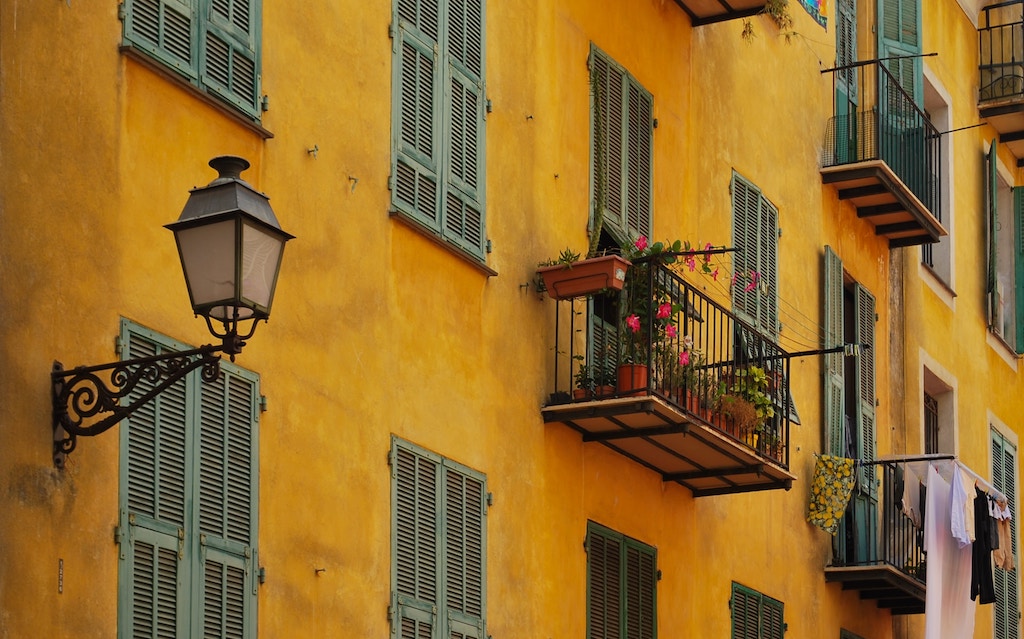
Residents say it's important to spend plenty of time in a place before deciding to settle there. Photo by Tim Alex on Unsplash
"Make a temporary move first," says British citizen Alison Honor, 53. "I know many families that have moved and then moved back to the UK."
Importantly, readers say, don't restrict your visits to times of year when you know the weather's going to be at its best.
READ ALSO: Can second-home owners get an Italian residency permit?
"Visit both in and out of season to understand just how very different places can be during the year," says 59-year-old Sioux Whenray-Hughes, who moved from the UK to Abruzzo's Chieti province.
"The best way is to come not just for a holiday, but to savor different seasons as there are huge differences in daily life according to whether it’s summer or winter,” says 66-year-old Jacqueline Gallagher from the UK.
Rural or urban living?
While Italy's natural beauty is a major draw for many people looking to relocate, residents warn of the downsides of moving to a very remote area.
"The more remote you go the more difficult it will be to acclimate, socialise and get to necessary places for the documents you need," says 50-year-old American-Italian Lori Colli, who lives in Porto Santo Stefano on the Tuscan coast.
READ ALSO: No wifi, no parcels: What to expect if you live in the Italian countryside
"If you have children, remote living might bore them to tears and travel distance is often an issue," says Alison Pockett, 66, from the UK.
On the flip side, more than one reader warned of high rental costs in many larger Italian cities.
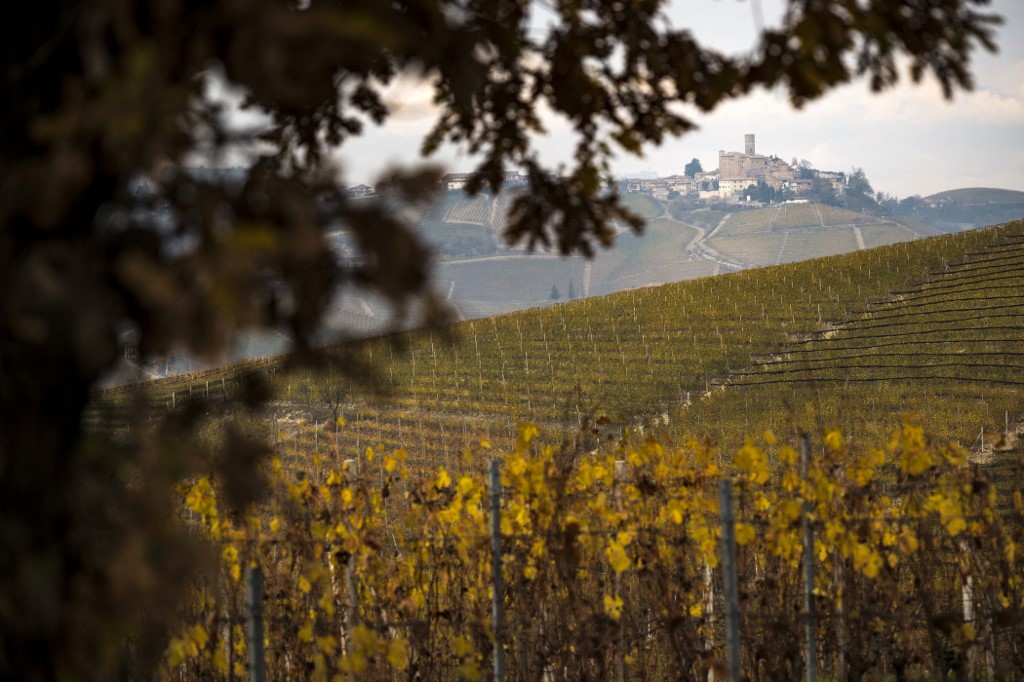
Life in Italy's rural areas is generally very quiet - perhaps too quiet for some. Photo by Marco BERTORELLO / AFP
Outside of major towns and cities, "rents will be cheaper, but you will need a car," notes 70-year-old David, an American living in Florence.
Some foreign residents have found smaller towns to be a good compromise.
"Concentrate on smaller towns as that is where you will be made to feel the most welcome," says 72-year-old Henry Damgaard in Montedinove, Marche.
READ ALSO: The 'Italian dream' - Why so many move to Italy for a brighter future
"In Rome we found services were quite poor and in many locations the level of litter was surprising. In the smaller towns and villages we found quite the opposite," says 72-year-old US citizen William Purves, who lives in Pacentro, Abruzzo.
Working age or retired?
Where in Italy to go really "depends on your age," says 88-year-old Valentine Hornsby, a British citizen living in a small fishing village in Puglia.
"If you're young and looking to work, go for one of the big northern cities, but if you don't need to work, indulge yourself in the beautiful south."
READ ALSO:
- 'If you want quality of life, choose Italy’s sunny south over the efficient north'
- 'The ups and downs of buying a property for retirement in a hilltop village in Italy'
- Seven things to know before moving to Italy's Puglia region
If you're lucky enough to work remotely, though, your job doesn't have to dictate your location.
"I also know many people who now work remotely can move anywhere and anytime they like. One month here one month there, why not if you don't mind the hassle of moving," says 53-year-old Judy Tong in Palermo.
37-year-old Becky from the UK is one such worker: "I work remotely so get to enjoy the countryside without having a long commute to a town or city for work," she says. "If you like nature then it’s a beautiful place to live."
Whether or not you're able to work remotely in this way will depend on your visa situation, but for EU nationals or Brits who lived in Italy before Brexit, for example, it is a popular option.
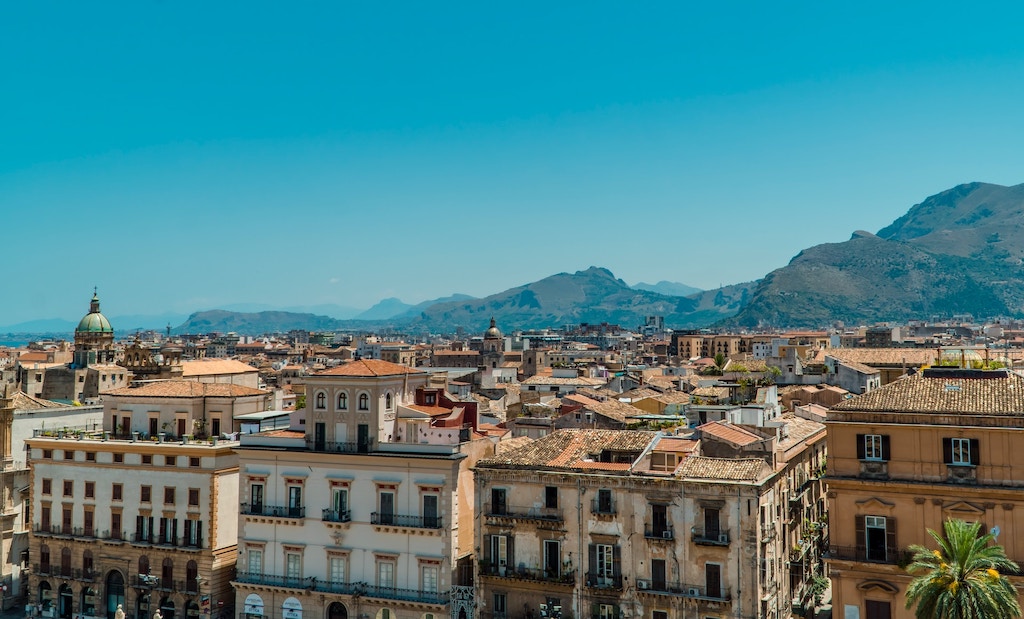
People of retirement age or who have the option of remote working may choose to live in Italy's sunny south. Photo by Jack Krier on Unsplash
"There is no work here, but I work remotely for various international companies so not an issue for me," agrees 45-year-old John from the UK, who lives in a rural area a two-and-a-half hour drive from his nearest city of Turin.
"The countryside is beautiful and a car is absolutely necessary to get around... It suits me, but wouldn't be for everyone."
'Go with the flow'
There's no denying that Italy's red tape can be a headache, and for some that might be a deal breaker. One respondent wrote that they "would not recommend moving here permanently" to people who don't already speak Italian, have access to an Italian passport, or have a deep well of patience.
In fact, not speaking Italian or not being familiar with the Italian way of doing things may a problem according to many of our survey respondents.
READ ALSO: Four things that make Italy a 'difficult' country to move to
"Lots of patience is necessary and a persistent nature," says 65-year-old Elizabeth dela Portilla from the US.
That doesn't mean you can't outsource some of the pain and tedium of paperwork to others, though.
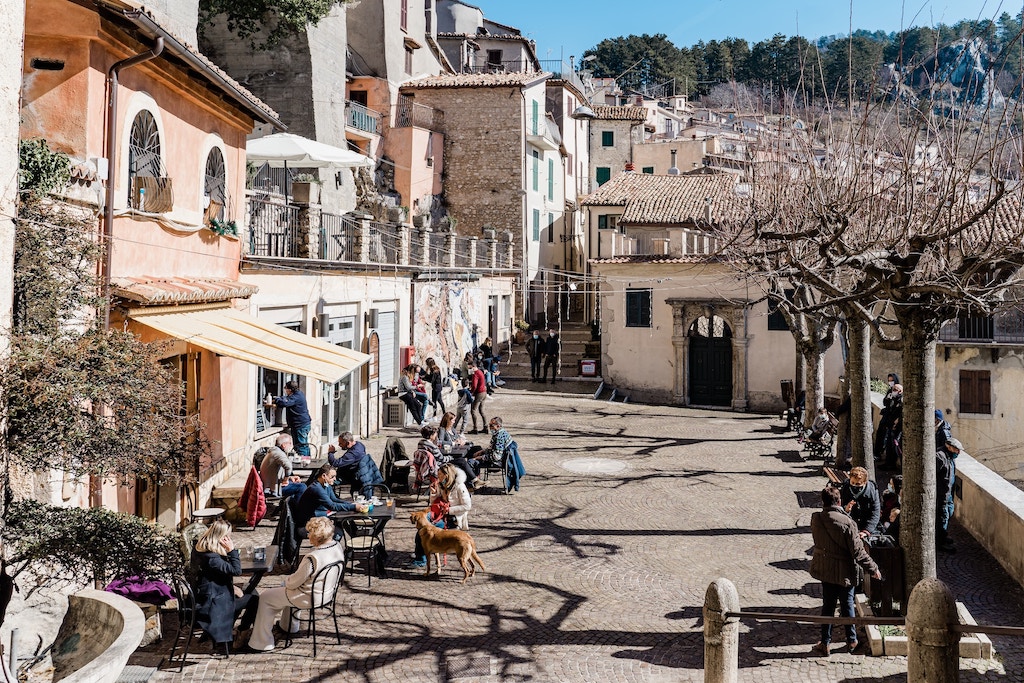
Coffee on the piazza is the reward for those who can face Italy's infamous bureacracy. Photo by Gabriella Clare Marino on Unsplash
"Hire professionals to help with all the red tape. It's worth it," says US citizen Walter Pancewicz, 65, who lives in Offida, Marche.
"Pitfalls - You need lots of patience for bureaucracy, driving is tricky and requires 100 percent concentration," says a 60-year-old Australian reader who lives in Gemona Del Friuli, Friuli Venezia Giulia.
"Otherwise, just relax and go with the flow. It is a fantastic country to explore."
Thanks to everyone who took the time to respond to our survey.
Do you have any more advice for people looking for the right part of Italy to move to? Please leave a comment below to share your thoughts.
Comments (2)
See Also
Many people who dream of moving to Italy have one question for those already living there: where should I go?
The answer, of course, depends on a wide range of factors: your family situation, stage of life, and working arrangements, as well as personal preferences.
But while it's no substitute for visiting in person and deciding for yourself, Italian residents can offer a perspective that might help focus your thinking.
We asked our readers who relocated to Italy - some months, others decades ago - what advice they have on finding the right place to live.
'Do your homework'
"Research, research and more research. Visit different regions and make lists of your priorities for living in Italy," says 66-year-old Stephanie Mather, a dual British and Italian citizen living in Spina, Umbria.
"Do your homework online; visit and stay in at least three areas that seem a good fit," says American citizen Steve Mackenzie, 74, who lives in Sarnano, Marche.
RANKED: The best (and worst) places to live in Italy in 2023
If possible, it's a good idea to stay in each place for longer than just a few days or even weeks when searching for your new home.
"Just go and live in an area for a few months and get a sense of the place, that’s really the only way to know if somewhere is right for you," advises 37-year-old Becky from the UK, who lives in the countryside outside Siena, Tuscany.

"Make a temporary move first," says British citizen Alison Honor, 53. "I know many families that have moved and then moved back to the UK."
Importantly, readers say, don't restrict your visits to times of year when you know the weather's going to be at its best.
READ ALSO: Can second-home owners get an Italian residency permit?
"Visit both in and out of season to understand just how very different places can be during the year," says 59-year-old Sioux Whenray-Hughes, who moved from the UK to Abruzzo's Chieti province.
"The best way is to come not just for a holiday, but to savor different seasons as there are huge differences in daily life according to whether it’s summer or winter,” says 66-year-old Jacqueline Gallagher from the UK.
Rural or urban living?
While Italy's natural beauty is a major draw for many people looking to relocate, residents warn of the downsides of moving to a very remote area.
"The more remote you go the more difficult it will be to acclimate, socialise and get to necessary places for the documents you need," says 50-year-old American-Italian Lori Colli, who lives in Porto Santo Stefano on the Tuscan coast.
READ ALSO: No wifi, no parcels: What to expect if you live in the Italian countryside
"If you have children, remote living might bore them to tears and travel distance is often an issue," says Alison Pockett, 66, from the UK.
On the flip side, more than one reader warned of high rental costs in many larger Italian cities.

Outside of major towns and cities, "rents will be cheaper, but you will need a car," notes 70-year-old David, an American living in Florence.
Some foreign residents have found smaller towns to be a good compromise.
"Concentrate on smaller towns as that is where you will be made to feel the most welcome," says 72-year-old Henry Damgaard in Montedinove, Marche.
READ ALSO: The 'Italian dream' - Why so many move to Italy for a brighter future
"In Rome we found services were quite poor and in many locations the level of litter was surprising. In the smaller towns and villages we found quite the opposite," says 72-year-old US citizen William Purves, who lives in Pacentro, Abruzzo.
Working age or retired?
Where in Italy to go really "depends on your age," says 88-year-old Valentine Hornsby, a British citizen living in a small fishing village in Puglia.
"If you're young and looking to work, go for one of the big northern cities, but if you don't need to work, indulge yourself in the beautiful south."
READ ALSO:
- 'If you want quality of life, choose Italy’s sunny south over the efficient north'
- 'The ups and downs of buying a property for retirement in a hilltop village in Italy'
- Seven things to know before moving to Italy's Puglia region
If you're lucky enough to work remotely, though, your job doesn't have to dictate your location.
"I also know many people who now work remotely can move anywhere and anytime they like. One month here one month there, why not if you don't mind the hassle of moving," says 53-year-old Judy Tong in Palermo.
37-year-old Becky from the UK is one such worker: "I work remotely so get to enjoy the countryside without having a long commute to a town or city for work," she says. "If you like nature then it’s a beautiful place to live."
Whether or not you're able to work remotely in this way will depend on your visa situation, but for EU nationals or Brits who lived in Italy before Brexit, for example, it is a popular option.

"There is no work here, but I work remotely for various international companies so not an issue for me," agrees 45-year-old John from the UK, who lives in a rural area a two-and-a-half hour drive from his nearest city of Turin.
"The countryside is beautiful and a car is absolutely necessary to get around... It suits me, but wouldn't be for everyone."
'Go with the flow'
There's no denying that Italy's red tape can be a headache, and for some that might be a deal breaker. One respondent wrote that they "would not recommend moving here permanently" to people who don't already speak Italian, have access to an Italian passport, or have a deep well of patience.
In fact, not speaking Italian or not being familiar with the Italian way of doing things may a problem according to many of our survey respondents.
READ ALSO: Four things that make Italy a 'difficult' country to move to
"Lots of patience is necessary and a persistent nature," says 65-year-old Elizabeth dela Portilla from the US.
That doesn't mean you can't outsource some of the pain and tedium of paperwork to others, though.

"Hire professionals to help with all the red tape. It's worth it," says US citizen Walter Pancewicz, 65, who lives in Offida, Marche.
"Pitfalls - You need lots of patience for bureaucracy, driving is tricky and requires 100 percent concentration," says a 60-year-old Australian reader who lives in Gemona Del Friuli, Friuli Venezia Giulia.
"Otherwise, just relax and go with the flow. It is a fantastic country to explore."
Thanks to everyone who took the time to respond to our survey.
Do you have any more advice for people looking for the right part of Italy to move to? Please leave a comment below to share your thoughts.
Join the conversation in our comments section below. Share your own views and experience and if you have a question or suggestion for our journalists then email us at [email protected].
Please keep comments civil, constructive and on topic – and make sure to read our terms of use before getting involved.
Please log in here to leave a comment.